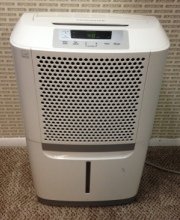Find a Mold Specialist Now
Click or Call, Toll-Free 24/7
Does Mold Sickness Go Away?
People often contact us to ask, does mold sickness go away? They contact us while struggling to cope with severe symptoms of mold sickness, worried that they are going to be sick forever.
Unfortunately, it’s not a question with a simple yes or no answer. Often, mold-related illness does go away after you get treatment and are no longer exposed to mold in the home. Sometimes, however, there are lasting effects.
We’ll tell you how you can reduce your risk of on-going mold-related symptoms and what to do if you are experiencing chronic symptoms. We’ll also review the common symptoms of mold-related illness for you.
Common Symptoms of Mold Sickness
Symptoms of mold-related illness vary and are wide-ranging. You may experience only a few symptoms or you may experience many. Symptoms might include:

- Asthma attacks
- Development of asthma or asthma-like symptoms in people not previously diagnosed with the condition
- Sinus infections, which may become chronic
- Sore throat, which may become chronic
- Bronchitis
- Pneumonia
- Headaches or migraines
- Coughing
- Sneezing
- Wheezing
- Runny nose or stuffy nose
- Itchy or irritated eyes
- Shortness of breath (dyspnea)
- Rash or hives
- Fatigue
- Depression
- General feeling of malaise
- Digestive issues
Here is more about mold health problems.
Does Mold Sickness Go Away?
Mold sickness often, though not always, goes away after you’ve gotten the necessary treatment and are no longer exposed to mold. It’s important to understand that both these things need to happen if you want your symptoms to go away – you need to get the proper treatment and you need to eliminate all mold in your home. Treatment is not likely to be effective and your condition may even continue to worsen if you continue to be exposed to mold.
The appropriate treatment depends on the symptoms you are experiencing. If you have a sinus infection or bronchitis, you might need antibiotics. If you are sneezing or having itchy, irritated eyes, you may need antihistamines. Depending on your symptoms, you may need medication for migraines, a cough suppressant, an inhaler to ease breathing, or other medical intervention. See your doctor to discuss the appropriate treatment plan for your needs and make sure to let your doctor know that you’ve been exposed to mold.
While pursuing treatment, you should also arrange to have the mold removed from your home as soon as possible. If your mold sickness is severe, your doctor may recommend not returning to your home until the mold has been removed. Talk to your doctor about whether or not it is safe to stay in your home until you can have the mold removed. You’ll definitely not want to be in the home during the mold removal process, as that stirs up mold spores and can make your symptoms worse.
For most people, most or all of their mold-related symptoms go away after receiving treatment and having the mold removed from their homes. Some people continue to have ongoing symptoms, though.
According to the National Center for Biotechnology Information (NCBI), some people experience chronic health problems after prior exposure to mold, including conditions like chronic fungal sinusitis, peripheral neuropathy (nerve damage in hands and/or feet), and chronic fatigue syndrome. It appears that some people harbor mold somewhere within their bodies. Researchers have found that people experiencing chronic mold sickness excrete mycotoxins (poisonous substances produced by mold) in their urine.
If you are experiencing chronic mold-related symptoms, you may need to see a specialist for treatment, like an infectious disease specialist. Ask your specialist, does mold sickness go away in cases like this? Your specialist should be able to give you a prognosis based on your condition and his or her treatment plan.
You should also have your home tested for mold to make sure all traces of mold have been removed. Remember, if you continue to be exposed to mold, you’ll continue to have symptoms of mold sickness.
Having Your Home Tested for Mold
If you find yourself asking does mold sickness go away because you’ve been suffering from mold-related symptoms for a long time, you should have your home tested for mold to make sure all traces of mold have been removed. While do-it-yourself mold test kits are available, we recommend having a certified professional test for mold to make certain the results are accurate. Most professional mold testers are engineers and they know all the places that mold can hide in the home. To find experienced certified mold testers in your area, just follow the link provided.
Additional Reading:
Detoxification - Steps to take to detoxify your body from mold exposure.
Return From Does Mold Sickness Go Away To Home Page
Privacy Policy Terms and Conditions Accessibility Do Not Sell My Information Disclaimer Contact Us




